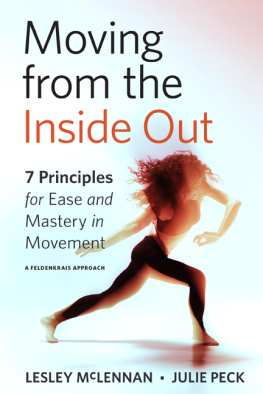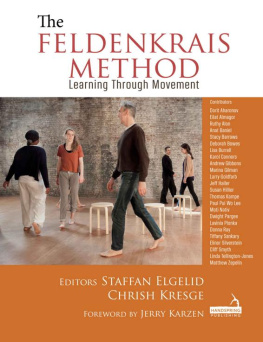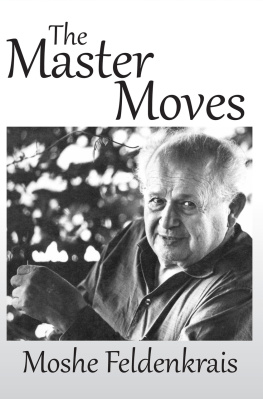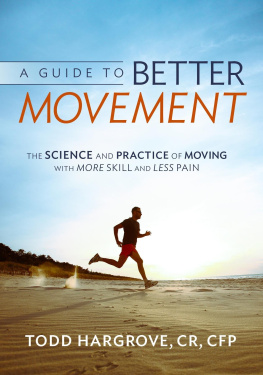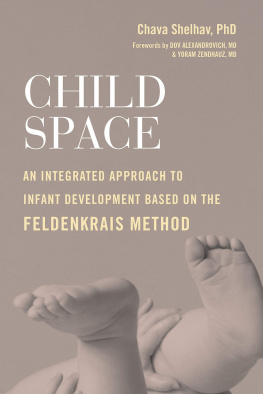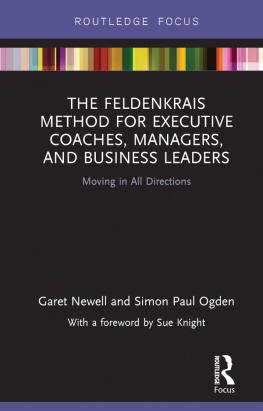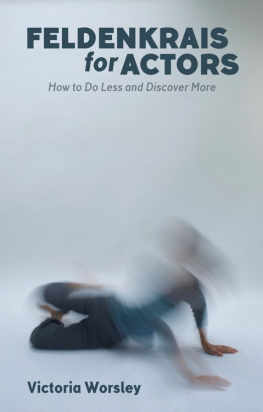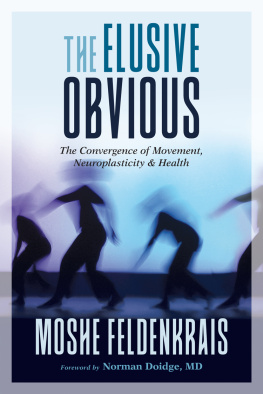Lesley McLennan - Moving from the Inside Out: 7 Principles for Ease and Mastery in Movement: A Feldenkrais Approach
Here you can read online Lesley McLennan - Moving from the Inside Out: 7 Principles for Ease and Mastery in Movement: A Feldenkrais Approach full text of the book (entire story) in english for free. Download pdf and epub, get meaning, cover and reviews about this ebook. year: 2020, genre: Children. Description of the work, (preface) as well as reviews are available. Best literature library LitArk.com created for fans of good reading and offers a wide selection of genres:
Romance novel
Science fiction
Adventure
Detective
Science
History
Home and family
Prose
Art
Politics
Computer
Non-fiction
Religion
Business
Children
Humor
Choose a favorite category and find really read worthwhile books. Enjoy immersion in the world of imagination, feel the emotions of the characters or learn something new for yourself, make an fascinating discovery.
- Book:Moving from the Inside Out: 7 Principles for Ease and Mastery in Movement: A Feldenkrais Approach
- Author:
- Genre:
- Year:2020
- Rating:3 / 5
- Favourites:Add to favourites
- Your mark:
- 60
- 1
- 2
- 3
- 4
- 5
Moving from the Inside Out: 7 Principles for Ease and Mastery in Movement: A Feldenkrais Approach: summary, description and annotation
We offer to read an annotation, description, summary or preface (depends on what the author of the book "Moving from the Inside Out: 7 Principles for Ease and Mastery in Movement: A Feldenkrais Approach" wrote himself). If you haven't found the necessary information about the book — write in the comments, we will try to find it.
Lesley McLennan: author's other books
Who wrote Moving from the Inside Out: 7 Principles for Ease and Mastery in Movement: A Feldenkrais Approach? Find out the surname, the name of the author of the book and a list of all author's works by series.
Moving from the Inside Out: 7 Principles for Ease and Mastery in Movement: A Feldenkrais Approach — read online for free the complete book (whole text) full work
Below is the text of the book, divided by pages. System saving the place of the last page read, allows you to conveniently read the book "Moving from the Inside Out: 7 Principles for Ease and Mastery in Movement: A Feldenkrais Approach" online for free, without having to search again every time where you left off. Put a bookmark, and you can go to the page where you finished reading at any time.
Font size:
Interval:
Bookmark:

Copyright 2020 by Lesley McLennan and Julie Peck. All rights reserved. No portion of this book, except for brief review, may be reproduced, stored in a retrieval system, or transmitted in any form or by any meanselectronic, mechanical, photocopying, recording, or otherwisewithout the written permission of the publisher. For information contact North Atlantic Books.
Published by
North Atlantic Books, Berkeley, California
and
Somatic Resources, San Diego, California
Cover design by Howie Severson
Book design by Happenstance Type-O-Rama
Cover photo gettyimages.com/Henrik Sorensen
Interior photos/illustrations Lesley McLennan, Sharon Felschow, Shutterstock
Feldenkrais, Feldenkrais Method, Functional Integration, Awareness Through Movement, and Guild Certified Feldenkrais Practitioner are service marks of the Feldenkrais Guild of North America.
Printed in Canada
Moving from the Inside Out: 7 Principles for Ease and Mastery in Movement is sponsored and published by the Society for the Study of Native Arts and Sciences (dba North Atlantic Books), an educational nonprofit based in Berkeley, California, that collaborates with partners to develop cross-cultural perspectives, nurture holistic views of art, science, the humanities, and healing, and seed personal and global transformation by publishing work on the relationship of body, spirit, and nature.
North Atlantic Books publications are available through most bookstores. For further information, visit our website at www.northatlanticbooks.com or call 800-733-3000.
MEDICAL DISCLAIMER: The following information is intended for general information purposes only. Individuals should always see their health care provider before administering any suggestions made in this book. Any application of the material set forth in the following pages is at the readers discretion and is his or her sole responsibility.
Library of Congress Cataloging-in-Publication Data
Names: McLennan, Lesley, 1958- author. | Peck, Julie, 1956 author. |
Society for the Study of Native Arts and Sciences, sponsoring body.
Title: Moving from the inside out : 7 principles for ease and mastery in
movement / Lesley McLennan & Julie Peck.
Description: Berkeley, California : North Atlantic Books ; San Diego,
California : Somatic Resources, [2020] | [S]ponsored and published by
the Society for the Study of Native Arts and Sciences. | Includes
bibliographical references and index.
Identifiers: LCCN 2019053785 | ISBN 9781623175085 (paperback) | ISBN
9781623175092 (epub)
Subjects: LCSH: Feldenkrais method. | Movement therapy.
Classification: LCC RC489.F44 M35 2020 | DDC 616.89/165dc23
LC record available at https://lccn.loc.gov/2019053785
North Atlantic Books is committed to the protection of our environment. We print on recycled paper whenever possible and partner with printers who strive to use environmentally responsible practices.
- Figure 1:A model of movement and learning10
- Figure 2:Li Wei balancing on the slack wire16
- Figure 3:Baby flexing18
- Figure 4:Baby extending18
- Figure 5:Tilting over one leghead travels in a long arc23
- Figure 6:Stepping with rotation in the torsohead stays central24
- Figure 7:Giraffes drinking28
- Figure 8:Sumo wrestler lifting leg28
- Figure 9:Ballet dancer en pointe28
- Figure 10:C curveright armpit and right pelvic crest move toward each other31
- Figure 11:S curveupper and lower spine in opposing curves32
- Figure 12:Madagascan women carrying bricks to kiln37
- Figure 13:Wrist and arm in alignment to transmit force41
- Figure 14:Wrist at risk if force is applied through it41
- Figure 15:Boxers wrist strapped to transmit force safely43
- Figure 16:Samburu warriors dancing45
- Figure 17:Lying semi-supine on towel52
- Figure 18:Baby sitting with the homologous pattern55
- Figure 19:Lying like a sphinx56
- Figure 20:Weight on elbows, drawing both knees forward as head drops and pelvis rises56
- Figure 21:Crawling position, weight forward56
- Figure 22:Ready to pounce58
- Figure 23:Homolateral movement on slack wire60
- Figure 24:Homolateral crawlweight is on the left, so right hand and knee can lift60
- Figure 25:First stage homolateral crawllooking right with weight on right61
- Figure 26:Mature homolateral crawllooking right with weight on left62
- Figure 27:The discus throwera spiraling contralateral pattern64
- Figure 28:Transition to/from sittingarms extended forward79
- Figure 29:Transition to/from sittingarms extended downward79
- Figure 30:Spiraling motion to stand80
- Figure 31:Cheetah resting watchfully88
- Figure 32:Head tilting front and back on horizontal (left to right) axis90
- Figure 33:Head tilting left and right on horizontal (front to back) axis91
- Figure 34:Head turning left or right around vertical axis91
- Figure 35:Spring-blade-style prosthetic98
- Figure 36:Lumbar vertebrae101
- Figure 37:Spine within body101
- Figure 38:Pelvisfrom the front103
- Figure 39:Pelvisfrom the side104
- Figure 40:Sit bone (ischial tuberosity)rolling forward over hand105
- Figure 41:Sit bone (ischial tuberosity)rolling backward over hand105
- Figure 42:Lightening one foothorizontal stick at front of pelvis110
- Figure 43:Lightening one foothorizontal stick at rear of pelvis111
- Figure 44:Seatedsupported on forearms113
- Figure 45:Seatedpelvis rolled forward to create spinal C curve114
- Figure 46:Seatedpelvis rolled backward to reverse spinal C curve114
- Figure 47:Looking and reaching up to the right as weight moves to right sit bone115
- Figure 48:Looking and reaching down to the left as weight moves to left sit bone116
- Figure 49:Lifting object with still torso122
- Figure 50:Lifting as sternum, head, and eyes turn toward object123
- Figure 51:Small turn and lift of foot toward mouth126
- Figure 52:As the foot lifts, the knee swings out and the sternum yields toward the foot128
- Figure 53:Using a mahlstick to support hand for fine brushstrokes130
- Figure 54:Violin techniqueBartolomeo Campagnoli131
- Figure 55:Torso as cylinder134
- Figure 56:A model of learning and movement147
- Figure 57:A model of learning, learning processes, and movement150
- Try It Yourself 1-1:Revisit sucking and swallowing20
- Try It Yourself 1-2:Sense how you stand and walk22
- Try It Yourself 1-3:Find mobility through the torso30
- Try It Yourself 2-1:Align your hand, wrist, and forearm40
- Try It Yourself 2-2:Transfer weight from sitting to standing46
- Try It Yourself 3-1:Explore spinal movements52
- Try It Yourself 3-2:Revisit a homologous crawl55
- Try It Yourself 3-3:Revisit a homolateral crawl61
- Try It Yourself 3-4:Observe people walking65
- Try It Yourself 4-1:Sense how effort spreads72
- Try It Yourself 4-2:See effort in the mirror73
- Try It Yourself 4-3:Explore turning75
- Try It Yourself 4-4:Sit down with reversibility78
- Try It Yourself 4-5:Breathe83
- Try It Yourself 4-6:Find clues in the non-habitual85
- Try It Yourself 5-1:Find the axes of rotation for your head90
- Try It Yourself 5-2:Coordinate your eyes, head, and shoulders94
- Try It Yourself 5-3:Imagine your spine97
- Try It Yourself 5-4:Re-imagine your spine99
- Try It Yourself 5-5:Map your spine in line with reality101
Font size:
Interval:
Bookmark:
Similar books «Moving from the Inside Out: 7 Principles for Ease and Mastery in Movement: A Feldenkrais Approach»
Look at similar books to Moving from the Inside Out: 7 Principles for Ease and Mastery in Movement: A Feldenkrais Approach. We have selected literature similar in name and meaning in the hope of providing readers with more options to find new, interesting, not yet read works.
Discussion, reviews of the book Moving from the Inside Out: 7 Principles for Ease and Mastery in Movement: A Feldenkrais Approach and just readers' own opinions. Leave your comments, write what you think about the work, its meaning or the main characters. Specify what exactly you liked and what you didn't like, and why you think so.

